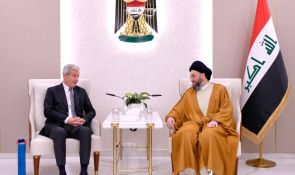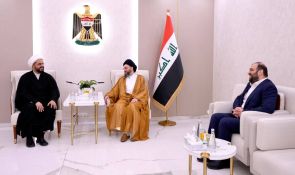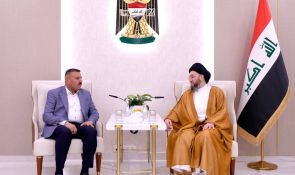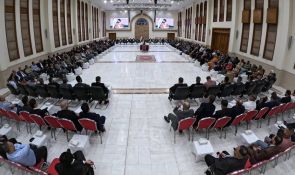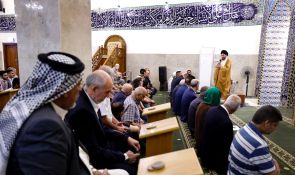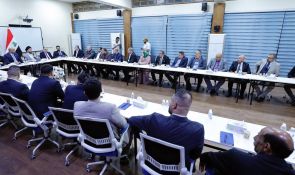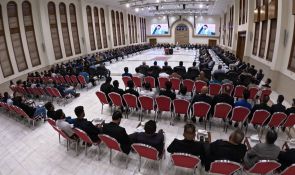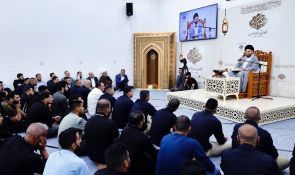Sayyid Ammar Al-Hakim with Tunisian Speaker of Parliament Mohamed Al-Nasser discusses bilateral cooperation between Iraq and Tunisia
Sayyid Ammar al-Hakim called for activating the joint committee between Iraq and Tunisia, and activating parliamentary diplomacy between the two countries and activating the trade and economic exchange in benefit for both countries. His eminence pointed out that religious institutions in Iraq and Tunisia represented by Najaf and Zeitouna can play the ideal role in renewing the religious discourse to confront extremism and non-religious thoughts.
\r\nThis took place during his eminence leading the National Iraqi Alliance delegation in a visit to Tunisia and meeting with the President of the Tunisian People\'s Assembly Mohamed Al-Nasser Friday 21/4/2017.
\r\nHis eminence warned region’s countries that Daesh is looking for new locations to compensate his losses in Iraq, pointing out that all reports and estimates speak of Libyan city of Sirte, and this requires intelligence cooperation between Iraq and Tunisia. Iraq has an experience in the fight against terrorism, stressing that terrorism is a result not a cause and main reason is extremist thought therefore confronting the ideology is a radical confrontation to the problem of terrorism.
\r\nHis eminence stressed that the National Iraqi Alliance as the largest bloc put forward the national settlement project as a project for a state, not for authority and a project of a community, not a project of sectarian, ethnical or doctrinal extensions, emphasizing that Arabism and sovereignty of Iraq and strengthen democracy and unity and building of citizenship are priorities of Iraq in the next phase that none of them is to be ignored .
\r\nSayyid Ammar al-Hakim pointed that Iraq is reconditioning through victories achieved by the security forces of various divisions, pointing out that the victories created expertise and accumulated experiences and enabled Iraqis to confront terrorism alone without the presence of any foreign fighter on ground, with exception of international support in air support, intelligence and training.


